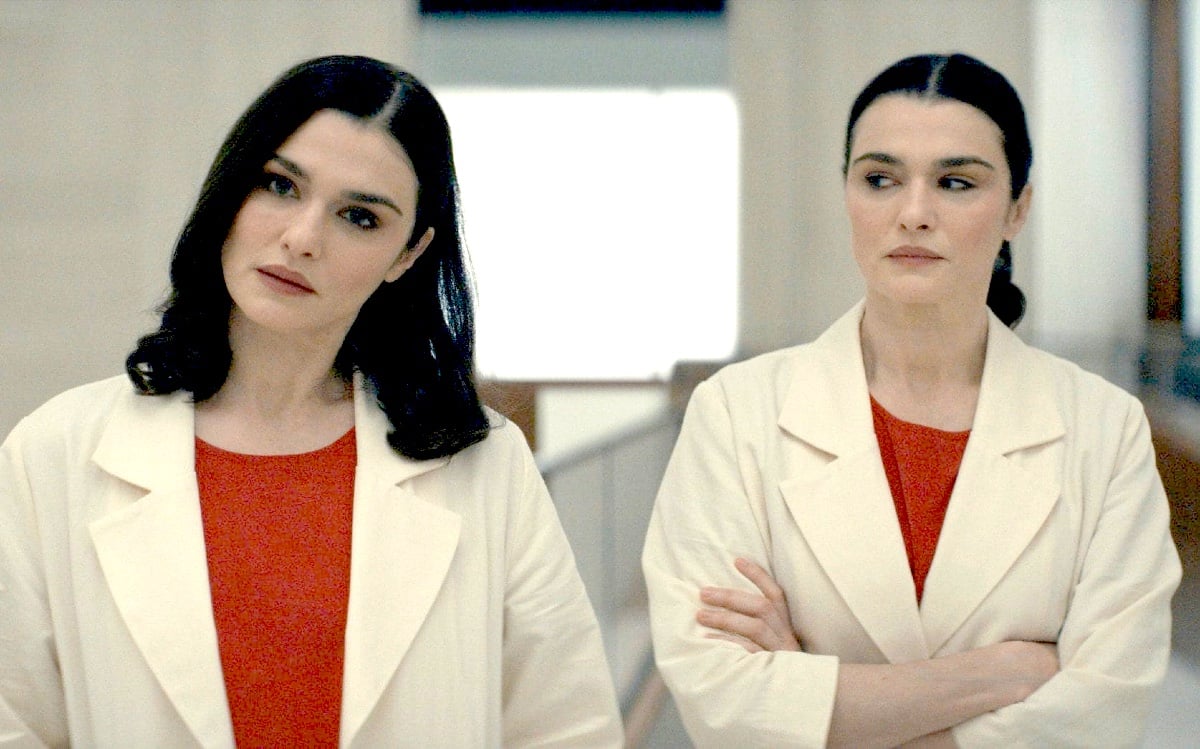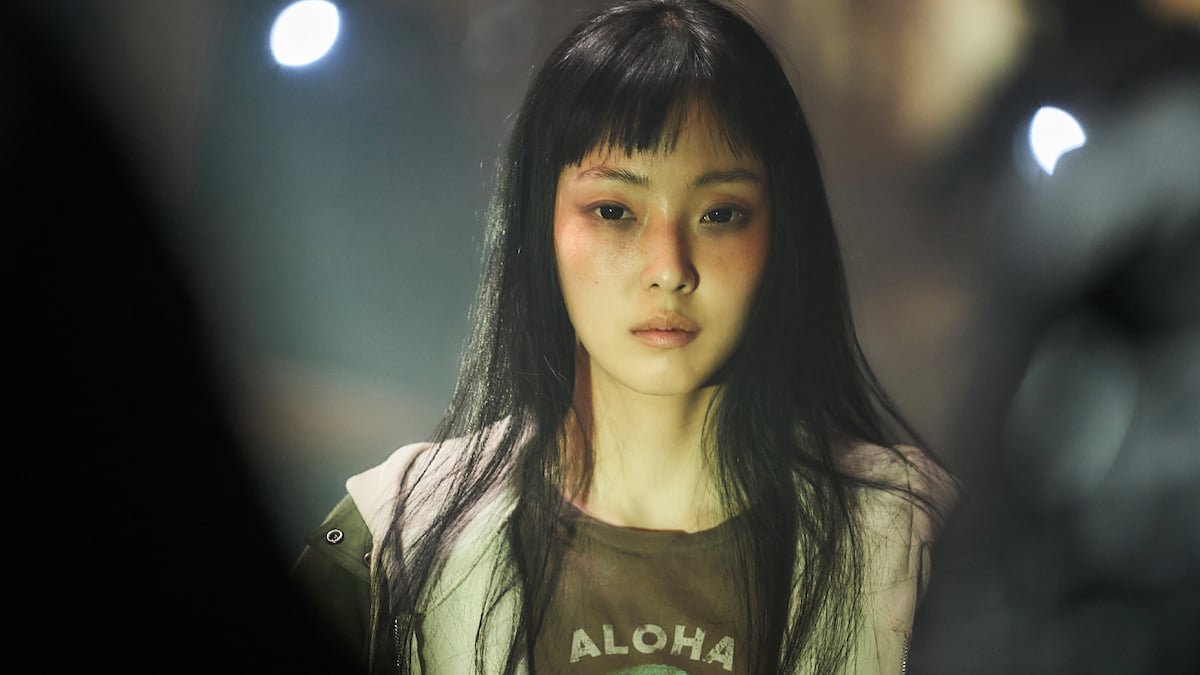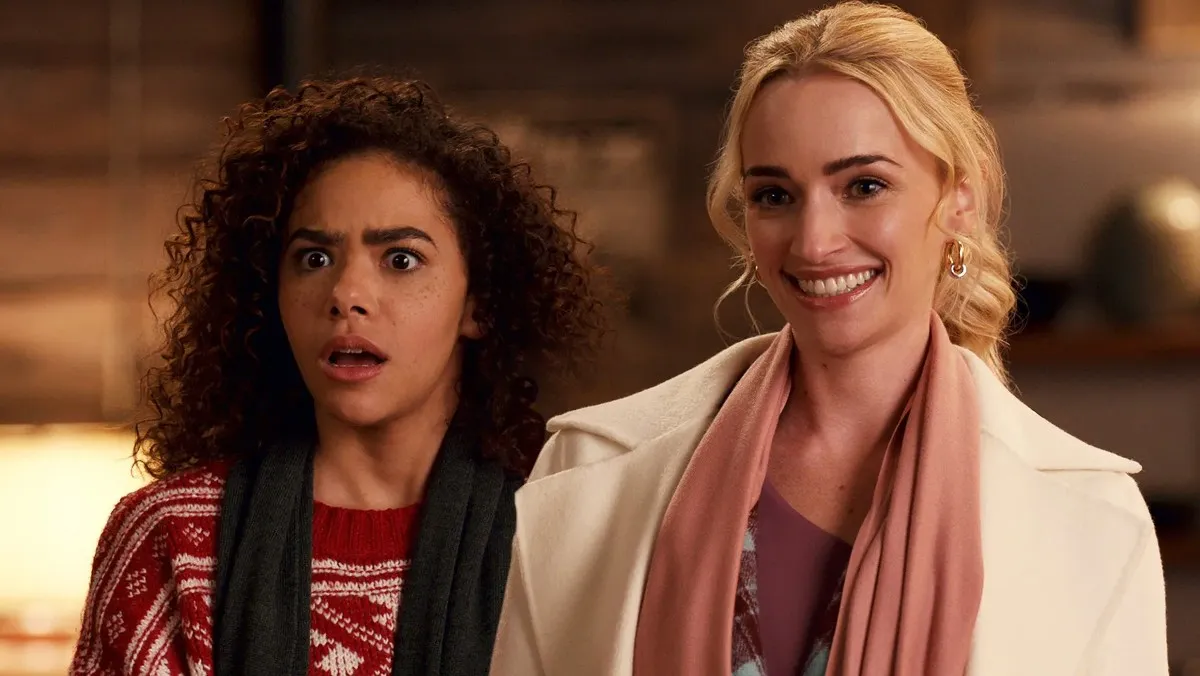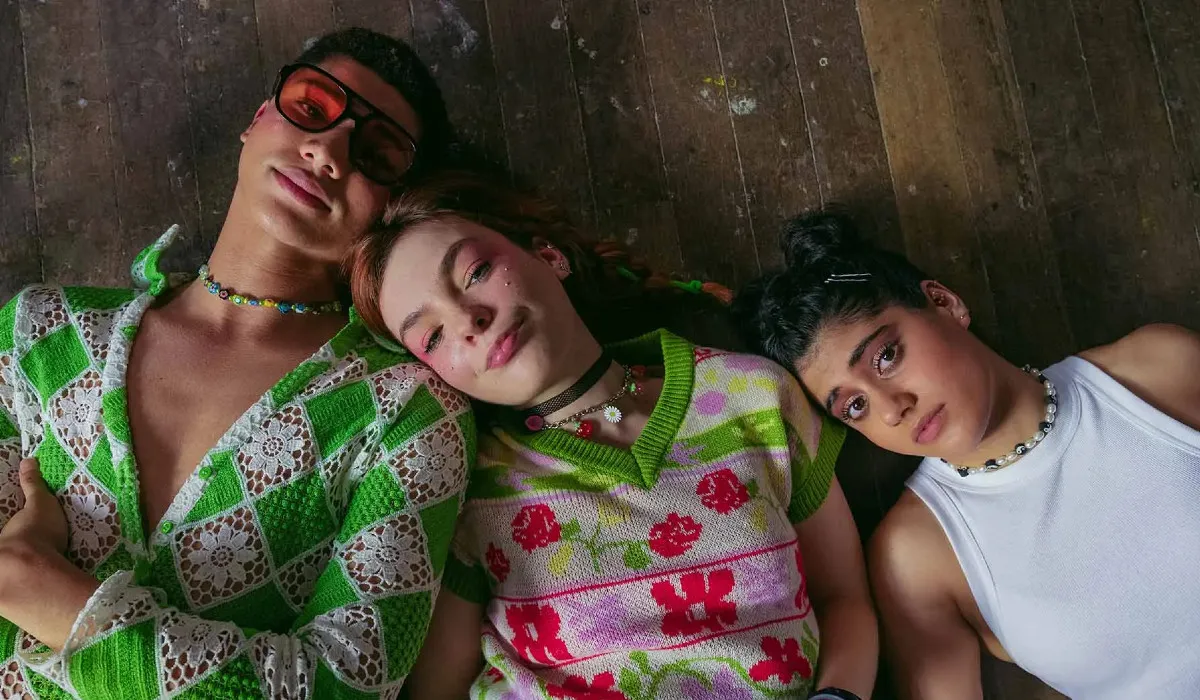As their story unfolds across six episodes, the deeply entangled lives of twins Beverly and Elliot Mantle (both played by Rachel Weisz) unravel—slowly at first, like the gentle tug of a loose thread that, when followed to its end, becomes profoundly destructive. Prime Video’s Dead Ringers observes the codependent relationship between the visionary gynecologists with a curiosity about the visceral that feels benevolent—a perspective succinctly captured early in the first episode, when Beverly discovers she’s had another miscarriage. “Hello,” says Beverly, gently greeting the bloody embryonic tissue in the palm of her hand. God is not one of us, but two.
This article contains spoilers for the Amazon series Dead Ringers as well as the 1988 film of the same name.
In nearly every way, Dead Ringers is a remarkable reiteration of a nesting doll of source material: Alice Birch (Lady Macbeth) and Rachel Weisz’s series is based on David Cronenberg’s 1988 psychosexual drama of the same name about twin male gynecologists, played deliciously by Jeremy Irons. Cronenberg’s film was based on the 1977 novel Twins, a fictionalized exploration of the lives of real twin gynecologists Stewart and Cyril Marcus, who died as they lived—together. The particulars of their deaths, which occurred around the same time in a New York apartment in 1975, instantly became the subject of morbid fascination and inspired haunting features in the likes of New York magazine and Esquire.
The Marcus twins have been reborn in 2023 as the Mantle sisters, a gender-swap that affirms a female predisposition for complexity. Simply changing the doctors from men to women enriches their story, underlining the fact that women’s bodies have become inherently political. The ability (or lack thereof) to reproduce is upheld as such a defining characteristic, one that’s perverted by multiple interests: the sexualization of fertility, the corporatization of reproductive rights, the pathologizing of women—their bodies and their choices.
Dead Ringers both pays homage to and expands upon Cronenberg’s film, a concept that is but one (very meta) example of duality in the series. Birch, who collaborated with a writers room comprised entirely of women, appears to view each dualism—holistic and scientific, nurture and nature, possibility and power, desire and hunger—with the same lens through which she perceives Beverly and Elliot. To say they exist as a dichotomy implies an active opposition. Really, they are two halves of the same whole. It’s only when an attempt is made to force a division between the two that a violent reaction is provoked.
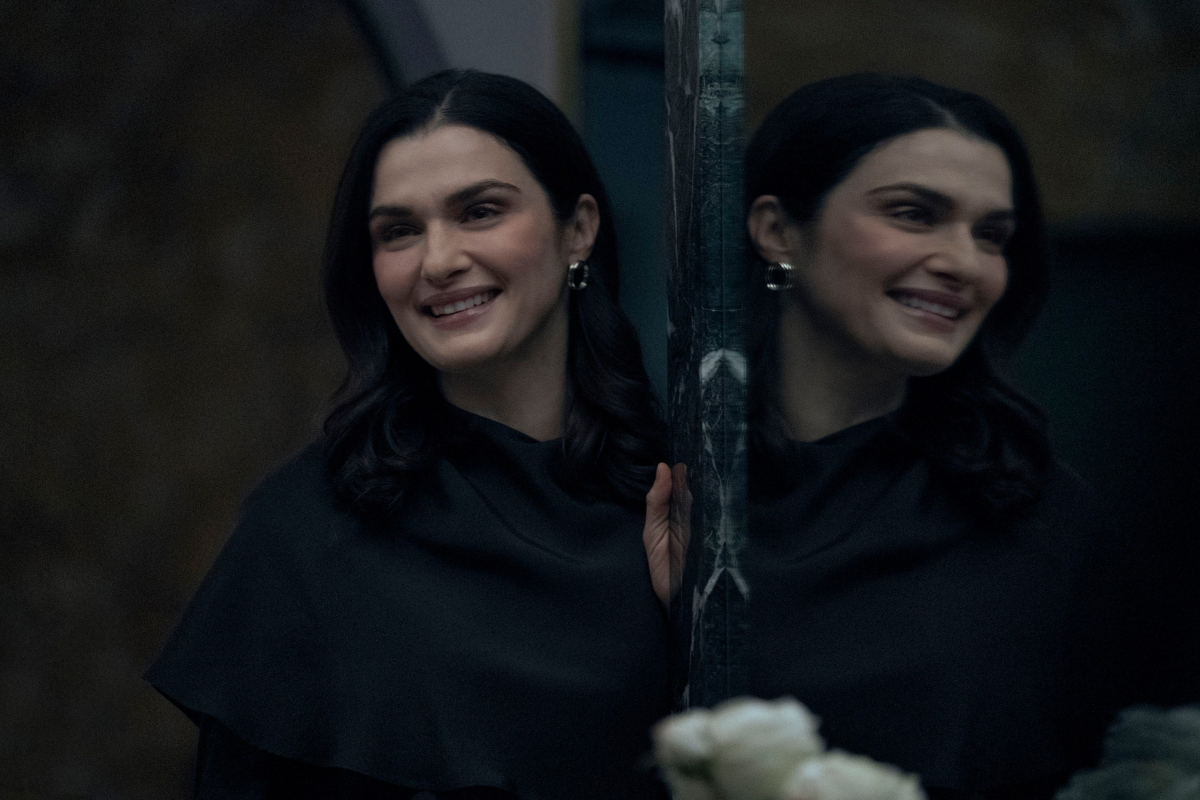
Their complementary nature is evident in the opening of the first episode, in a bit of narrative shorthand that establishes their dynamic and helps the viewer distinguish between them. Beverly and Elliot are sitting in a diner and discussing their plans for a birthing center when a man in a nearby booth clumsily interrupts with a crude inquiry: Do the twins ever … you know? The scene is breathtaking in its efficiency, allowing Weisz to distinguish her performances while pointedly dismissing prurient interests.
While Beverly thoughtfully digs into a polite plate of eggs, Elliot consumes a juicy hamburger, licking the runoff from her fingers. The pair brutally double-team the misogynist interloper (two girls, one chump), with Beverly declaring, “We just cut a baby out of a woman’s womb—she asked us to, we didn’t just, like, do it—but what I’d like to do now, the very next thing I would like to do, just after I finish these eggs, is f—k my sister in front of you.” Her charisma is such that Weisz could summon chemistry with an IKEA end table, so perhaps it shouldn’t be surprising that the interplay between Weisz and Weisz as the sisters Mantle is so concentrated.
With one scene, Dead Ringers accomplishes what Cronenberg’s film couldn’t. His Mantles are tragically underdeveloped: An early scene in the 1988 film depicts Bev and Elliot’s childhood curiosity about the female anatomy and sex, distilled to an unfortunate exchange with a neighbor girl that never quite amounts to an explanation. As Beverly loses his grip, seduced away from Elliot and into an amphetamine addiction by his mercurial actress girlfriend Claire (Genevieve Bujold), his fascination with the female body and its reproductive abilities curdles into revulsion. It’s the closest Cronenberg’s film comes to making an observation about gender dynamics in the real world, and given that it was released at a time when abortion was legal in all 50 states, it feels surreal watching it now.
Birch’s Dead Ringers arrives at a precarious time for reproductive rights in the U.S., as several states have effectively banned abortion. Recent efforts to invalidate the FDA’s approval of mifepristone (one of two pills commonly used in combination for medicated abortions) suggest an unlikely alliance forming between reproductive rights activists and pharmaceutical corporations—a union Beverly is wary of when presented with the opportunity to obtain funding from Rebecca Parker (Jennifer Ehle), the series’ stand-in for the Sackler family (see also: the opioid crisis).
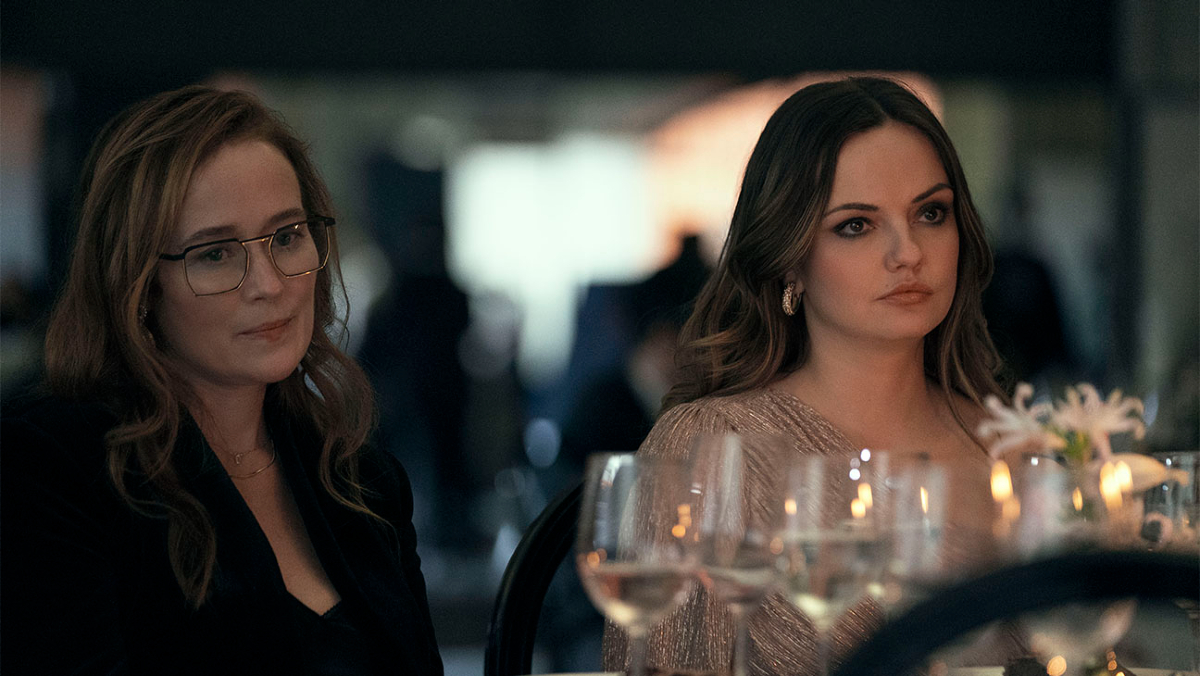
Parker is a wealthy puppeteer whose interest in healthcare is entirely superficial and, given her family’s history, self-serving. Her bestie is Gwen, an unsubtly named Gwyneth Paltrow proxy and huckster who promotes barbaric treatments under the guise of wellness.
At a dinner hosted by Rebecca and her wife, Susan (a somewhat underutilized Emily Meade), where Bev and Elliot are expected to court an investment, the Goop-alike exalts the benefits of trepanning—the process of drilling a hole in a skull—with the sort of gentle affection one might use to describe a pleasant cup of tea. The dark satire is heightened by the thing looming behind Rebecca: a portrait that, although at first glance appears to depict delicate folds of cured meat, is actually a close-up of Gwen’s vagina.
In both iterations of Dead Ringers, Beverly and Elliot are true codependents; one cannot exist without the other. In Birch’s version, when Beverly goes on a trip with her patient-turned-girlfriend, an actress named Genevieve (Britne Oldford), Elliot loses all sense of self. The voracious twin backslides into drinking and drug abuse, unmoored by the absence of her other half.
An unhoused woman confronts Elliot at the birthing center, forcing her to uncomfortably acknowledge the collateral damage of constructing this progressive, state-of-the-art facility meant to help women. The cognitive dissonance is too much for Elliot, who pushes the woman off of the roof and to her death. Later, she decides she hallucinated the incident.
Dead Ringers is punctuated by a series of uncomfortable dinner scenes, from the opening rebuff of leering misogyny to the twins’ subsequent dinner meetings with the Parkers, each more stressful than the last. Consumption and hunger are motifs throughout all six episodes: As Beverly consummates her relationship with Genevieve in the bedroom, Elliot crawls across a kitchen counter, feeding on the scraps of their picked-over dinner like a predatory cat.
The most pivotal dinner scene comes later in the series, when the Mantles visit the Parkers at the home of Susan’s father, a gynecologist named Marion (Michael McKean). While debating the purpose of medical practice and the necessity of error, Marion recounts the story of his ancestor, a 19th century doctor who unwittingly became a gynecologist when he treated a young woman who developed severe complications after giving birth. Marion boasts about the revolutionary discoveries made when his grandfather operated on this 17-year-old girl, conveniently eliding the horrific truth. The grisly particulars of the ancestral Marion’s surgical endeavors are made more visceral by close-ups of knives and forks tearing into the flesh of delicate roasted hens.
The real story, which is taken from our own history, concerns the barbaric work of J. Marion Sims, widely considered the father of modern gynecology. Sims “practiced” on several Black women who were enslaved, though only three names were ever recorded in his notes: Anarcha, Lucy, and Betsy. He surgically experimented on these women—in front of other men and without the application of anesthesia, let alone the dignity of dressing gowns or privacy curtains. Though anesthesia had recently become available, most healthcare providers labored under the racist, dehumanizing lie that Black people—and especially Black women—did not experience pain in the same way as white people.

Dead Ringers extends a heavy hand in its examination of Anarcha’s story. The truth is delivered through Beverly’s dream of a Black enslaved woman, an invocation of Robert Thom’s portrait of Anarcha and J. Marion Sims—which depicts Anarcha as docile, kneeling submissively in front of three white men.
In Beverly’s dream, the Black woman steps off the table and begins reciting the facts of Anarcha, referred to only as “that young woman” by Marion. It makes a certain amount of sense to return Anarcha’s story to its rightful place and to symbolically restore a voice that’s been claimed by white supremacy. And while this revelation will likely inspire viewers to learn the truth about Sims and his work, I’m not sure that Dead Ringers is able to reckon with this violent, racist history of gynecology with such limited screen time.
Nor is it able to adequately develop its most elusive character, Greta. Played by Poppy Liu, Greta is the Mantles’ eccentric assistant, an artist who scurries about the Parker home, collecting bloody tampons and hair from shower drains for what we assume is one of Elliot’s embryo experiments. The truth is that Greta is processing the traumatic death of her mother, who died in childbirth, and these reclaimed pieces of genetic refuse are meant for Greta’s cathartic art installation.
Dead Ringers is most effective as a psychosexual exploration of the Mantle sisters, whose psychology is inextricable from their sex. The series is less interested in graphic depictions of sexual intimacy than it is with sex as an abstraction—how it informs experience and perverts the mundane.
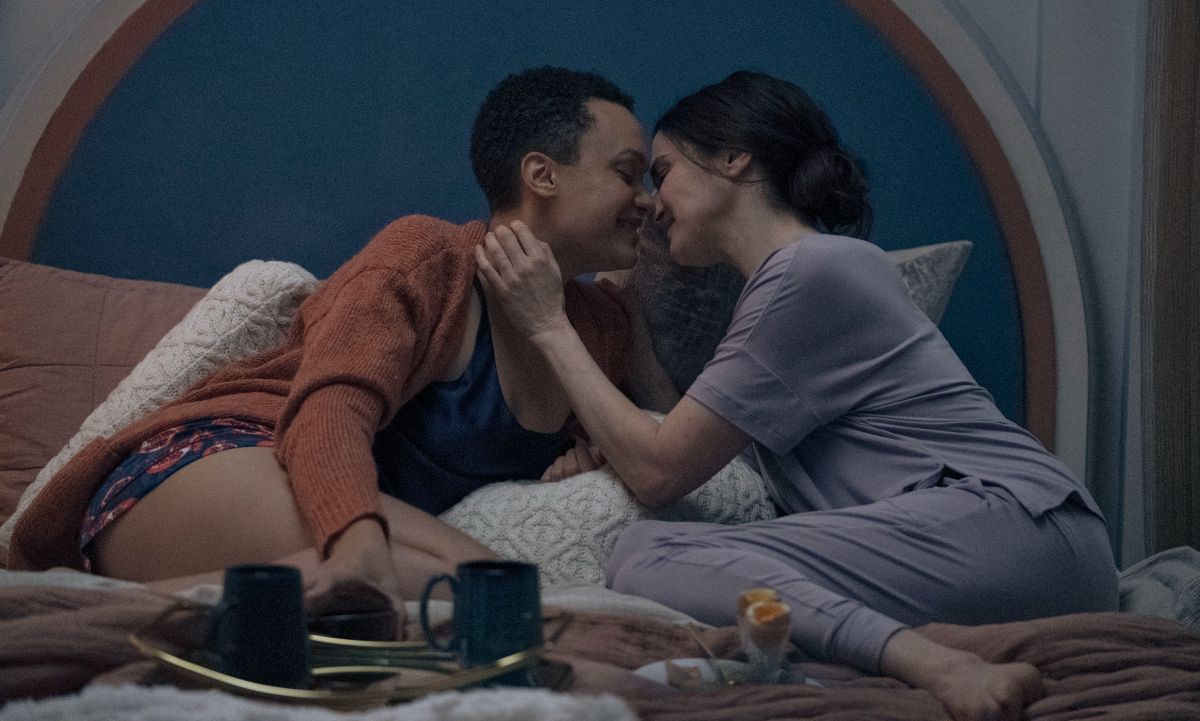
Birch’s series is preoccupied with dualities, echoes of which are found everywhere, from the twins themselves to Elliot’s pair of experimental embryos and Genevieve’s bicornuate uterus. It’s also present in the series’ gorgeous set design, which becomes more prominent in the third episode with the unveiling of the illustrious birthing center. The center embodies the ways in which Dead Ringers operates: as both an artful homage and a full dilation of Cronenberg’s film, a clot of blood blooming in a crumpled tissue.
Dead Ringers interrogates whether two halves can—or should—be separated, and whether they can ever truly be whole. Nature cannot exist without nurture, just as science cannot exist without humanity. These concepts may occasionally oppose one another, but they are ultimately symbiotic. The same is true for the Mantles. Beverly is contemplative and introspective, while Elliot is impulsive and self-indulgent. Beverly wants to help women, often reminding her colleagues that pregnancy is not an illness. Elliot is playing god, pushing the boundaries of science and ethics by seeing how long she can grow a viable embryo outside of a womb: 14 weeks, 26 weeks, 58.
But after years of failed attempts, Beverly’s successful pregnancy threatens to upend a delicate balance between the Mantles. We see the moment when Beverly realizes the true horror of her own body—she’s carrying twins, girls—and Elliot cleverly clocks that her sister doesn’t actually want the happy ending she’s imagined for herself. Why else would Beverly be drinking coffee and sneaking cigarettes?
In the first episode, Dead Ringers sows uncertainty in our ability to differentiate between the twins, introducing us to Beverly and Elliot’s habit of swapping places when one needs a timeout—as when Beverly becomes overwhelmed while examining Genevieve’s uterus. We also learn that the audacious Elliot often “brings” women to her more timid sister—a revelation that temporarily destroys Beverly’s relationship with Genevieve.
This uncertainty returns in later episodes, when we learn that Beverly has joined a support group to cope with removing Elliot from her life, speaking of her erstwhile twin as if she were already dead. She has her reasons. A shrewd journalist is writing a story about the twins and planning to out Elliot as an abusive and dangerous drug addict. If Beverly wants the birthing center—and her happy little family with Genevieve—to thrive, she has to “kill” Elliot. It isn’t enough to cut off contact; Beverly must publicly denounce her sister. And she does. But she has something more devastating in mind.
Much of the final episode is underscored by the insistent buzzing of Beverly’s phone and a series of missed calls from Elliot, which prove to be a ticking bomb. The sisters meet in Elliot’s lab, where Beverly makes a harrowing concession: “There was only ever supposed to be one of us. You were always the better version of me.” Then, with unnerving benevolence, Beverly offers, “You have to climb inside me now.” The scene pays homage to Cronenberg once more as Elliot anesthetizes Beverly and cuts her open, removing the infant twins. Elliot makes an incision in her own pelvis and sutures it, giving the impression that she has just endured an emergency C-section.
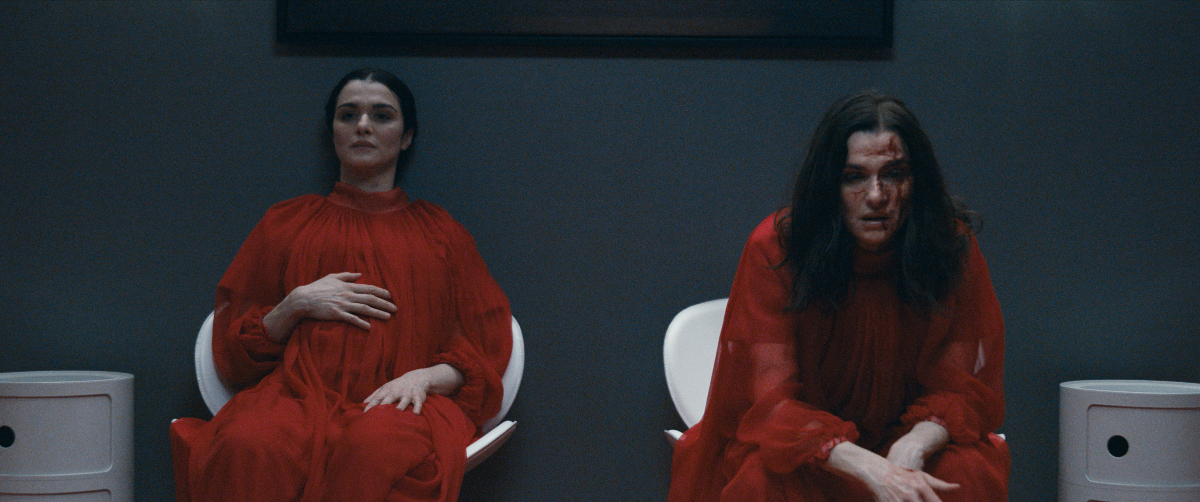
The existence of the so-called father of gynecology naturally raises the question of maternity. How could this science exist without the blood and pain and trauma of the women who literally birthed it? It is their labor, their energy, their horror. And so, it’s only fitting that birth is the crux of Dead Ringers’ ultimate act, with Beverly allowing her ostracized sister to be reborn with one last twin-swap. In her final moment, Beverly achieves maternal immortality, her body splayed open and drained of life in a visceral tableau. A monument to the horrors of a woman’s body.
In the final scene, we are left to consider the true identity of a distracted Dr. Mantle, sitting on a park bench with her infant twins in tow. Is this Beverly or is it Elliot? There is a phenomenon in instances of multiple gestation, where one fetus dies and is partially or fully absorbed by the surviving fetus: the vanishing twin. Perhaps both halves have finally assimilated and become whole.
(featured image: Prime Video)



